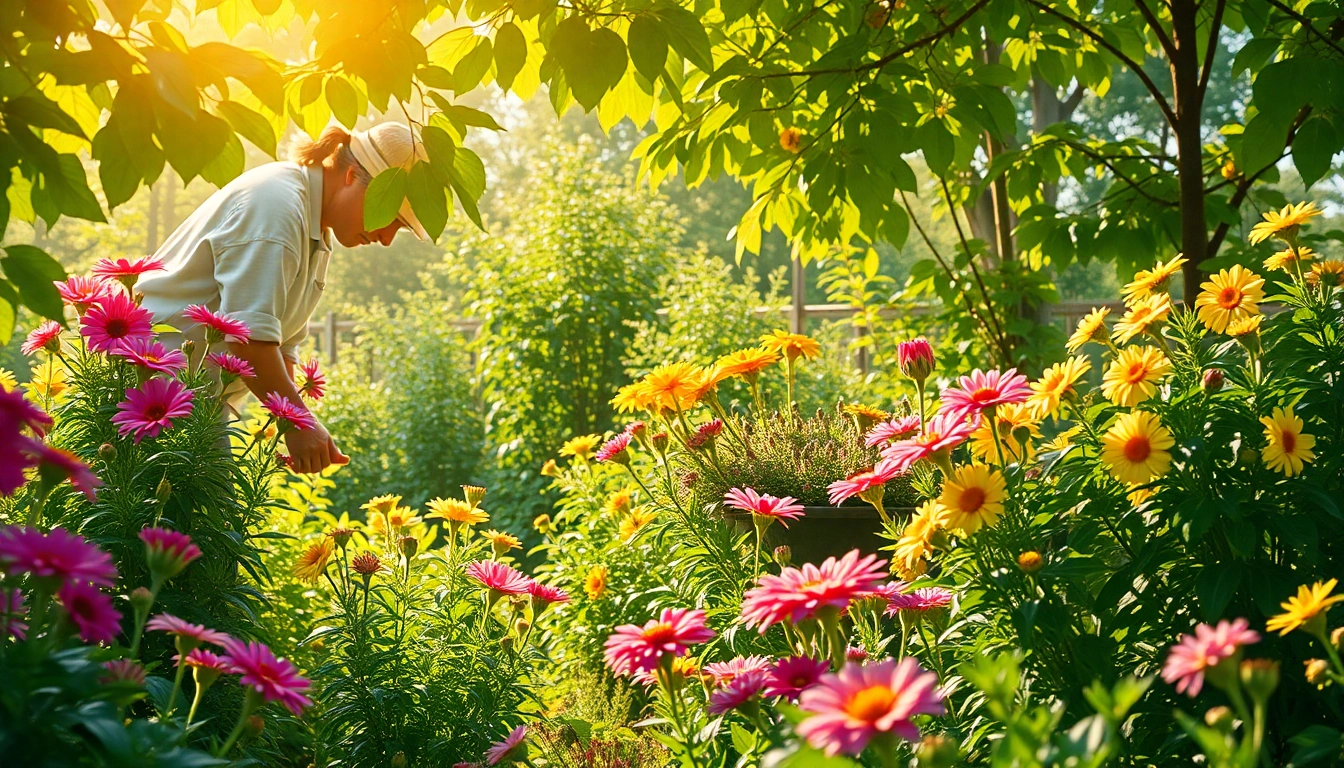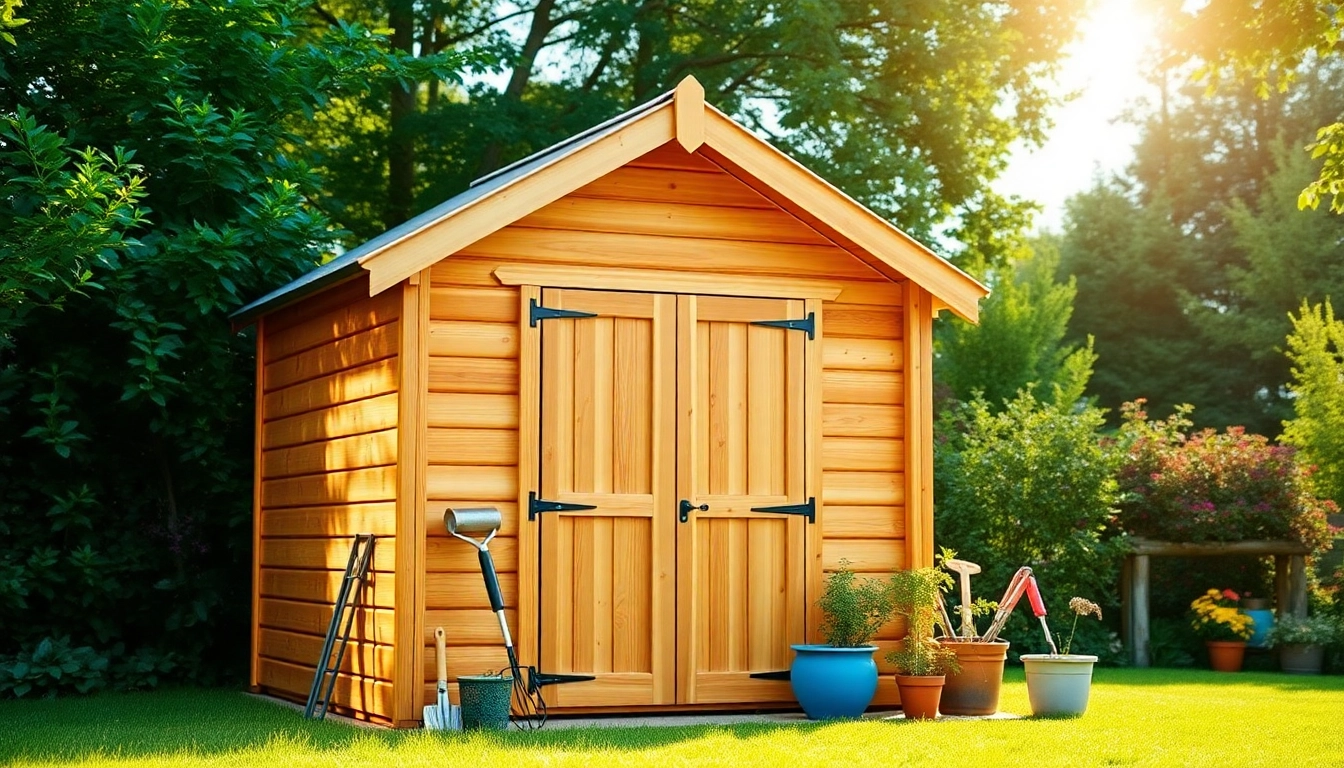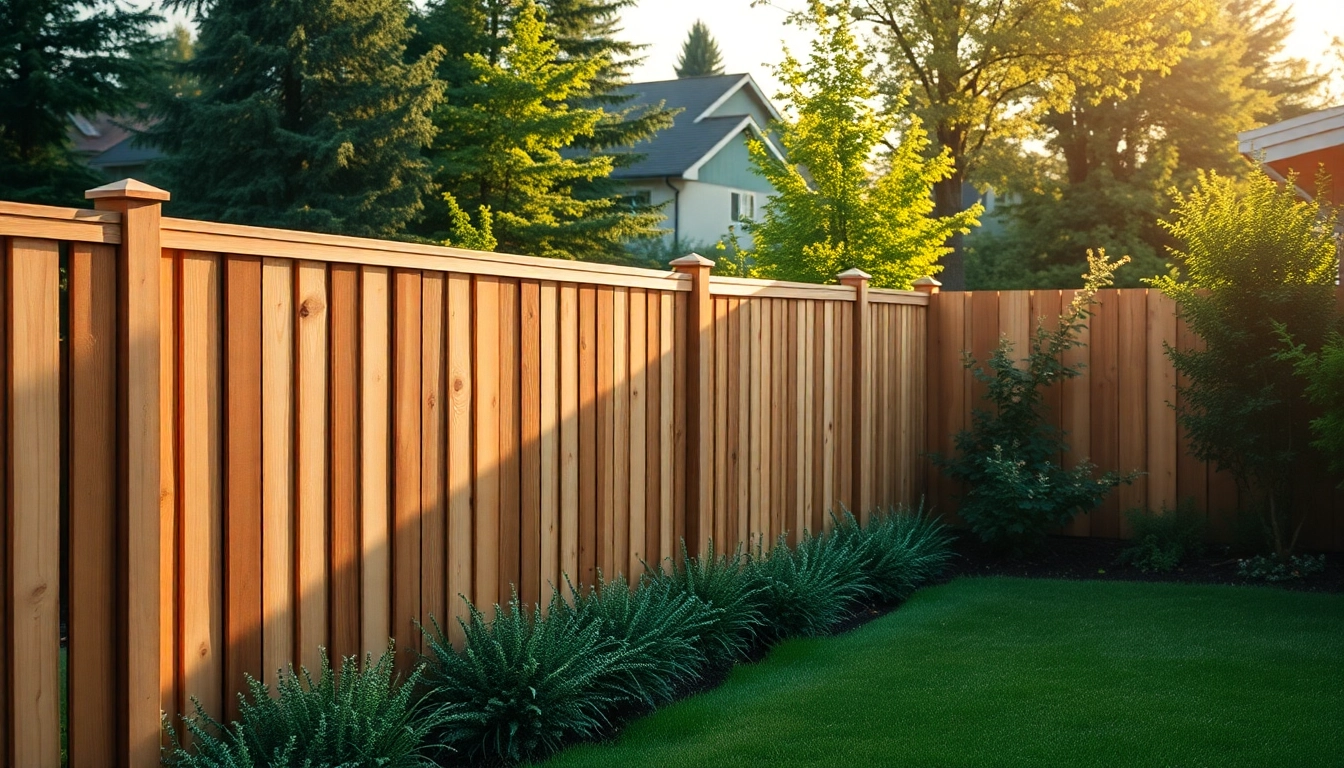Understanding Garden Maintenance
Garden maintenance is the crucial process of sustaining the health, beauty, and productivity of your garden. Beyond the initial planting phase, a successful garden requires an ongoing commitment to nurturing the plants, managing pests, and ensuring ideal growing conditions. This encompassing guide will provide comprehensive insights into the principles and practices that characterize effective garden maintenance, including actionable strategies that will set your garden apart from the rest, making it truly thrive. For expert assistance, consider visiting Garden maintenance services that can elevate your garden’s upkeep.
What is Garden Maintenance?
At its core, garden maintenance involves routine practices designed to promote the growth and health of plants. This can include, but is not limited to, watering, weeding, pruning, fertilizing, and pest control. It entails ongoing attention to the various environmental factors influencing plant health, such as soil quality, moisture levels, and sun exposure. Effective garden maintenance not only ensures the aesthetic appeal of the landscape but also encourages biodiversity and maximizes the garden’s productivity.
Common Challenges in Maintaining Gardens
While maintaining a garden can be a satisfying endeavor, various challenges can impede your efforts:
- Pests and Diseases: Insects and plant diseases can devastate your garden quickly if not identified and controlled promptly.
- Weather Extremes: Fluctuations in weather, including droughts or excessive rainfall, can significantly affect plant health.
- Soil Degradation: Nutrient depletion and erosion can lead to poor plant growth unless properly managed.
- Time Management: With busy schedules, many gardeners struggle to find the necessary time for regular maintenance.
The Benefits of Regular Maintenance
Regular garden maintenance offers a myriad of benefits:
- Healthier Plants: Consistent care prevents the onset of diseases and promotes robust plant growth.
- Aesthetically Pleasing: Well-maintained gardens provide visual appeal and increase property value.
- Stress Reduction: Gardening serves as a therapeutic activity that can alleviate stress after a long day.
- Biodiversity Support: Healthy gardens foster diverse ecosystems by providing habitats for beneficial insects and wildlife.
Key Practices for Effective Garden Maintenance
Soil Preparation and Fertilization Techniques
Soil preparation is essential for a thriving garden. Proper soil management ensures that plants receive adequate nutrients and water. Here are some key practices:
- Soil Testing: Conduct soil tests to determine pH levels and nutrient deficiencies. This helps in customizing your fertilization strategy.
- Organic Matter: Incorporate compost or well-rotted manure to enhance soil structure and nutrient content.
- Mulching: Use organic mulches to retain moisture, suppress weeds, and gradually enrich the soil as they decompose.
Watering Guidelines for Healthy Plants
Watering is crucial for plant health, yet it can also lead to problems if not done correctly. Here are effective watering practices:
- Deep Watering: Water deeply but infrequently to encourage deep root growth.
- Timing: Early morning is the best time to water, minimizing evaporation and fungal diseases.
- Rainwater Harvesting: Consider installing rain barrels to collect rainwater, providing a sustainable watering source.
Pest and Disease Management Strategies
Pests and diseases can threaten the harmony of your garden. Here are strategies to combat these challenges:
- Integrated Pest Management (IPM): Use a combination of biological controls, such as beneficial insects, and cultural practices to manage pests sustainably.
- Regular Inspections: Frequently inspect plants for signs of distress, allowing for early detection and intervention.
- Organic Pesticides: Utilize environmentally friendly pesticides as a last resort, ensuring to follow application guidelines carefully.
Seasonal Garden Maintenance Tips
Spring: Preparing for Growth
Spring is a vital time for preparing your garden. Not only should you clean up any debris, but this is also the best time to apply fertilizers and prepare your soil for planting. Here’s how to optimize your spring garden:
- Soil Preparation: Amend your soil with organic matter and fertilizers based on your soil test results.
- Planting Schedule: Plan your planting schedule based on the last frost date in your area.
- Weed Control: Begin weeding early to prevent seeds from setting and gaining a foothold in your garden.
Summer: Ongoing Care and Protection
As the growing season peaks, summer requires consistent maintenance to ensure your garden flourishes:
- Water Management: Keep a close eye on moisture levels, particularly during dry spells.
- Pruning: Remove dead or dying flowers (deadheading) to encourage new blooms and prevent disease.
- Pest Monitoring: Continuously monitor for signs of pests and diseases, applying control measures as needed.
Fall: Preparing for Winter
Fall maintenance is crucial for protecting your garden during the winter months. Consider the following steps:
- Clean-Up: Clear out dead plants and debris to minimize harboring pests over winter.
- Mulching: Apply a thick layer of mulch around perennials to insulate them from freezing temperatures.
- Planting Bulbs: Fall is an ideal time to plant spring-flowering bulbs, ensuring a vibrant display come spring.
Tools and Equipment for Efficient Garden Maintenance
Must-Have Tools for Every Gardener
Having the right tools is essential for efficient garden maintenance. Some must-have tools include:
- Pruning Shears: Essential for trimming and shaping plants.
- Garden Fork: Useful for turning soil and aerating garden beds.
- Watering Can or Hose: An absolute necessity for managing watering tasks.
- Hand Trowel: Ideal for planting, transplanting, and digging.
Technology in Garden Maintenance: Benefits of Smart Tools
Modern technology has permeated gardening, making tasks simpler and more efficient. Smart gardening tools can help monitor various conditions:
- Soil Sensors: Measure moisture content and nutrient levels, alerting you when to water or fertilize.
- Automated Watering Systems: These systems adjust based on soil moisture levels, conserving water while ensuring your plants thrive.
- Apps for Gardeners: Various apps can guide plant care, pest identification, and scheduling maintenance tasks.
Maintenance Tips for Your Gardening Equipment
To ensure longevity and effectiveness, it is vital to maintain your gardening tools:
- Regular Cleaning: Clean tools after use to remove soil and plant residues that can harbor pests and diseases.
- Sharpen Blades: Keeping blades sharp facilitates clean cuts, which is healthier for plants.
- Storage: Store tools in a dry area to prevent rust and decay, using hooks or racks to keep them organized.
Finding Professional Help in Garden Maintenance
When to Hire a Professional Gardener
Some tasks in garden maintenance may be beyond your skill or time constraints. It may be wise to consider hiring a professional gardener in the following scenarios:
- Complex Landscaping: For intricate landscaping designs that require expertise, reaching out to a landscape professional is beneficial.
- Pest Infestation: If you encounter a significant pest problem, professionals can quickly assess and treat the issue.
- Aging or Health Challenges: If managing your garden physically becomes too challenging, a gardener can provide essential assistance.
How to Choose the Right Garden Maintenance Service
Selecting the right gardening service involves several considerations:
- Experience: Look for a service with a proven track record and positive reviews from past customers.
- Services Offered: Ensure they offer the specific services you require for your garden’s needs.
- Cost Estimates: Obtain multiple quotes to ensure you are receiving fair and competitive pricing for the services.
Comparing Costs and Services for Garden Maintenance
The cost of garden maintenance can vary significantly based on several factors, including:
- Type of Services: Regular maintenance (like weeding, mowing, mulching) may cost less than specialized services like pest control or landscape design.
- Size of the Garden: Larger gardens will naturally incur higher maintenance costs due to the increased labor and resources required.
- Geographic Location: Costs can vary regionally, influenced by local market rates and the cost of living.
In conclusion, garden maintenance is a multifaceted practice that requires knowledge, dedication, and a willingness to adapt to changing conditions. Whether you choose to undertake these tasks personally or enlist professional help, maintaining a healthy garden enhances its beauty and contributes to its ecological integrity. By applying the insights and strategies outlined in this guide, you can cultivate an outdoor paradise that brings joy and tranquility to your life.




